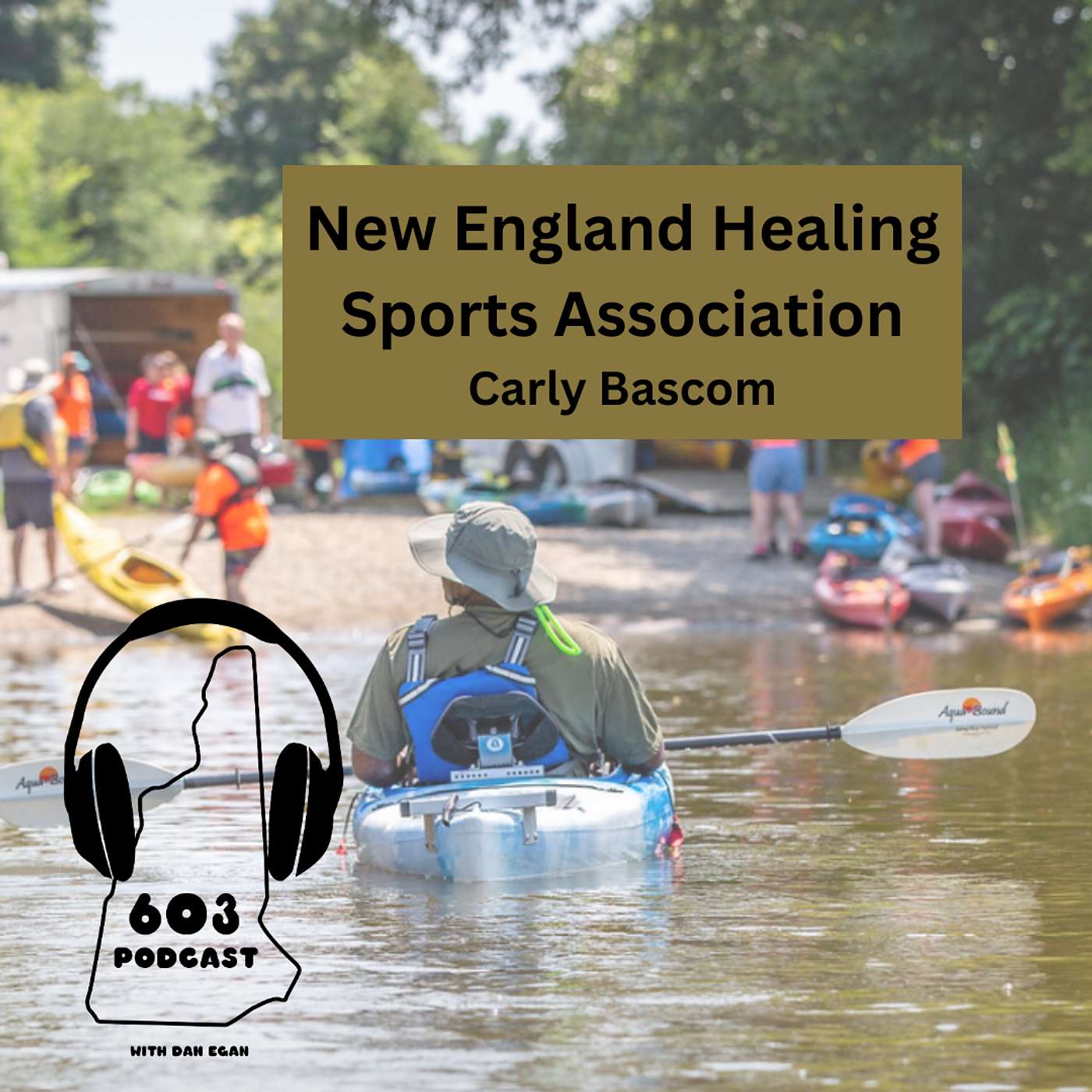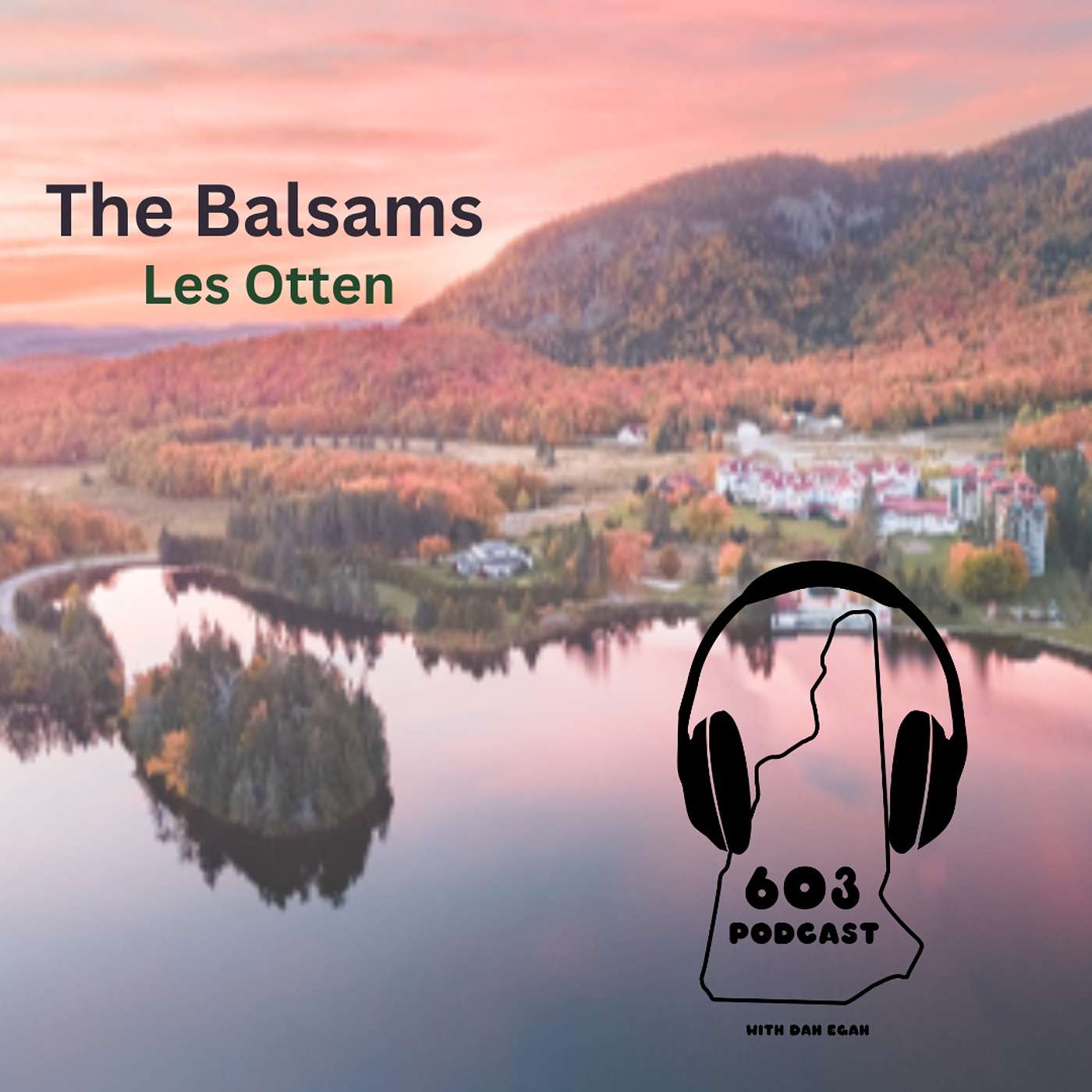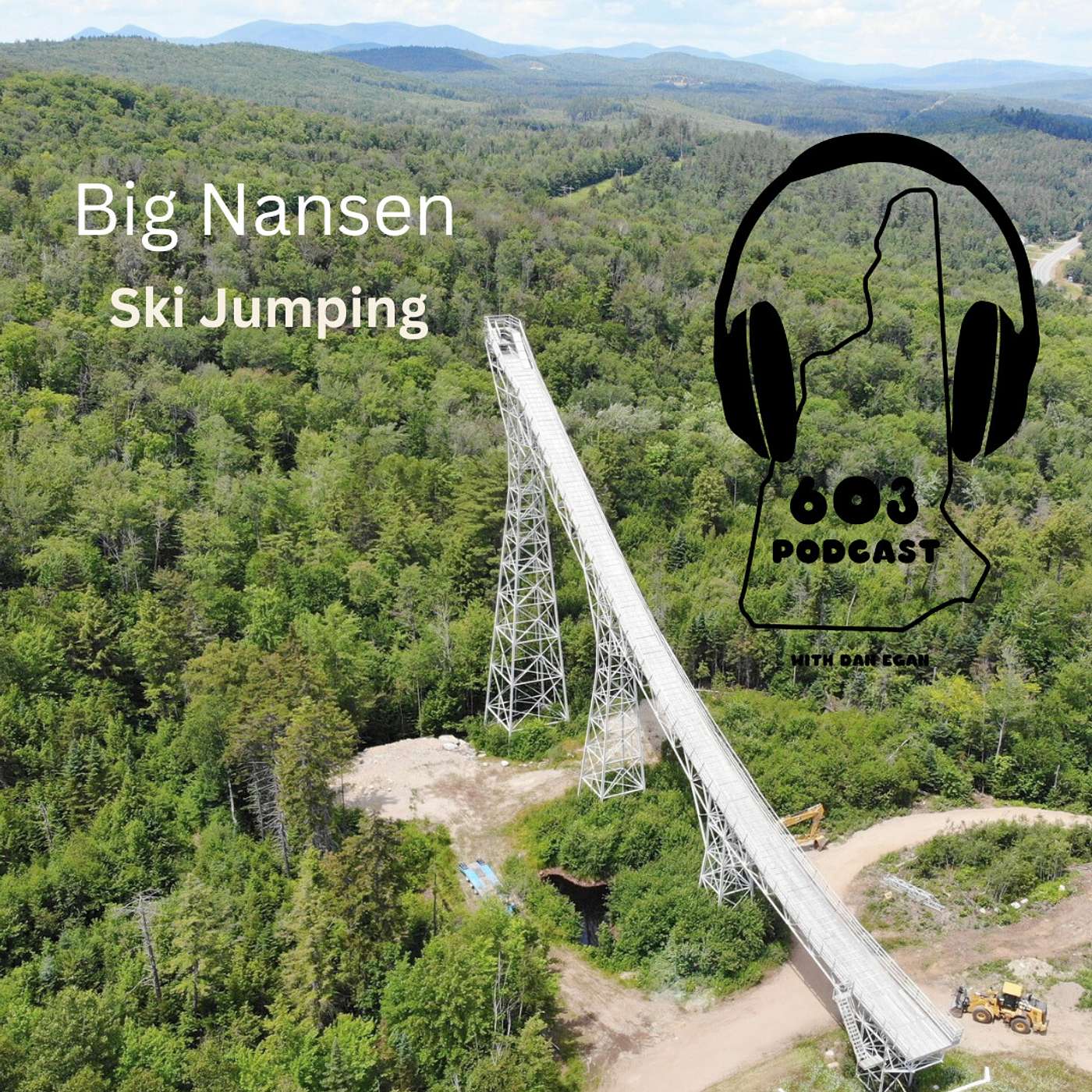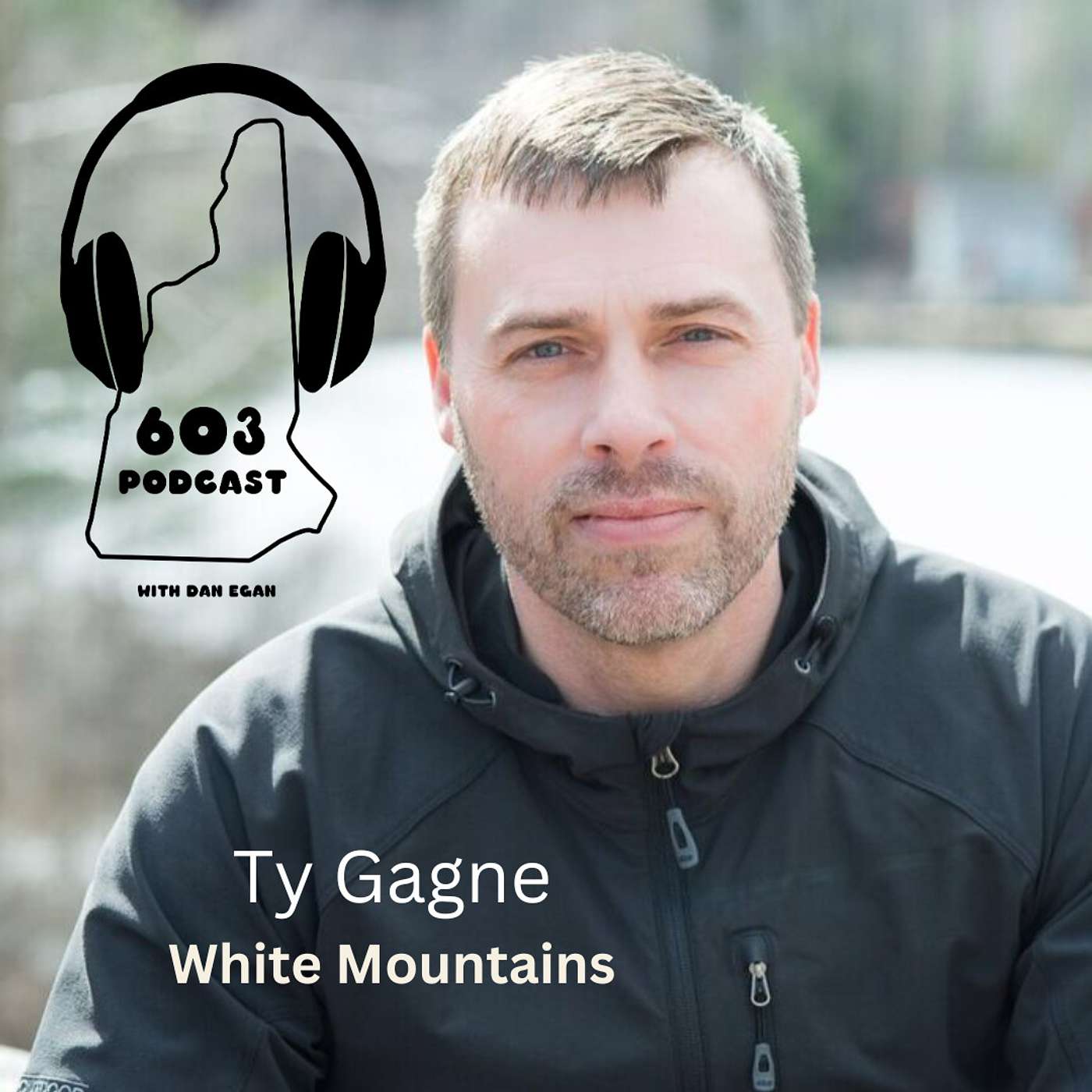603Podcast with Dan Egan
North Conway, NH in "Mount Washington Valley: Through The Ears" with Sarah Eastman and Karen Cummings
Feb 06, 2026
Season 2
Episode 7
The people places of New Hampshire, Hosted by Dan Egan
In this episode of the 603podcast, Dan Egan sits down with Sarah Eastman and Karen Cummings to unpack “Mount Washington Valley: Through The Ears,” a vibrant collection of Mountain Ear newspaper stories from 1976–2005 that detail how the unique community of North Conway became a world-class destination. This conversation moves from railroads and grand hotels to artists selling hand-painted “postcards,” then onto five historic ski areas and the ingenious Cranmore Skimobile that still lives in local memory.
We explore the people who built the culture like Joe Dodge and the AMC hut system that stitched the Presidential Range into reachable segments, and the Eastern Slope Ski Club, a volunteer engine that teaches every elementary school child to ski and quietly seeds future Olympians. Along the way, we revisit the Spring Champagne Stampede and the Mud Bowl—events that turned low-snow years and shoulder seasons into fundraisers and folklore—plus the Volvo International tennis era that put North Conway on national TV without sanding off its edges.
Eastman and Cummings discuss the valley’s heartbeat and offer practical wisdom: respect Mount Washington’s dangerous weather, start with short hikes, ride the tourist train to feel the past, wander the village where the station’s towers frame the mountain, and let the Saco River and the notches reset your sense of New England. Sarah and Karen share how they sifted thousands of features to preserve the characters and places that defined a community—proof that storytelling can hold a town together long after the presses stop.
You can purchase Mount Washington Valley: Through the Ears from Bondcliff Books, the local bookstore.
Subscribe for more Granite State stories, share this episode with a friend who loves the Whites, and leave a review telling us your favorite North Conway memory.
Send a text
Mad River Coffee celebrates 20 years of roasting coffee, legendary egg sandwiches, meals to go, and live music right off Exit 28 in Campton NH.
For more information about the 603podcast visit 603podcast.com
 North Conway, NH in "Mount Washington Valley: Through The Ears" with Sarah Eastman and Karen Cummings
1:00:20
North Conway, NH in "Mount Washington Valley: Through The Ears" with Sarah Eastman and Karen Cummings
1:00:20
 Avalanche Safety with Charlotte MacDonald: Inside the Mount Washington Avalanche Center
53:46
Avalanche Safety with Charlotte MacDonald: Inside the Mount Washington Avalanche Center
53:46
 True Crime Travel Guide: Dawn Barclay On Dark Tourism Across New Hampshire And Beyond
27:59
True Crime Travel Guide: Dawn Barclay On Dark Tourism Across New Hampshire And Beyond
27:59
 Preserving History: New Hampshire's Covered Bridges with Kim Varney Chandler
35:38
Preserving History: New Hampshire's Covered Bridges with Kim Varney Chandler
35:38
 SIX03 Endurance: Trail Running in New Hampshire
32:25
SIX03 Endurance: Trail Running in New Hampshire
32:25
 Hannah Kearney: The Granite State's Mogul Queen
39:26
Hannah Kearney: The Granite State's Mogul Queen
39:26
 New Hampshire's Mogul and Freestyle Skiing Legacy at Waterville Valley: Insights from Nick and Suzi Preston
53:39
New Hampshire's Mogul and Freestyle Skiing Legacy at Waterville Valley: Insights from Nick and Suzi Preston
53:39
 Randy Pierce: New Hampshire-based Blind Mountaineer and Marathon Runner on Resilience and Achievement
50:16
Randy Pierce: New Hampshire-based Blind Mountaineer and Marathon Runner on Resilience and Achievement
50:16
 New Hampshire Presidential Primaries & Politics with Neil Lavesque (New Hampshire Institute of Politics at Saint Anselm College)
41:25
New Hampshire Presidential Primaries & Politics with Neil Lavesque (New Hampshire Institute of Politics at Saint Anselm College)
41:25
 Lindsey LaPointe: New Hampshire Adventure Writer, Outdoor Enthusiast, and Local Hiking Expert
47:16
Lindsey LaPointe: New Hampshire Adventure Writer, Outdoor Enthusiast, and Local Hiking Expert
47:16
 Moose Ecology and Conservation in New Hampshire with Henry Jones (Fish and Game Department)
52:16
Moose Ecology and Conservation in New Hampshire with Henry Jones (Fish and Game Department)
52:16
 NH Local Radio Station: Roy Prescott on North Conway's 93.5 WMWV
1:02:11
NH Local Radio Station: Roy Prescott on North Conway's 93.5 WMWV
1:02:11
 Hubbard Brook Ecosystem Study: Lindsey Rustad on Connecting Science and Community
1:02:22
Hubbard Brook Ecosystem Study: Lindsey Rustad on Connecting Science and Community
1:02:22
 New England Healing Sports Association (NEHSA) with Executive Director Carly Bascom
33:02
New England Healing Sports Association (NEHSA) with Executive Director Carly Bascom
33:02
 The Balsams: Les Otten on the History and Revival of an Iconic New Hampshire Resort (Great Northwoods Region)
1:55:18
The Balsams: Les Otten on the History and Revival of an Iconic New Hampshire Resort (Great Northwoods Region)
1:55:18
 The Big Nansen: The History of Ski Jumping in New Hampshire with Scott Halvorson
42:51
The Big Nansen: The History of Ski Jumping in New Hampshire with Scott Halvorson
42:51
 Ty Gagne: Author, Speaker and Risk Expert (White Mountains)
1:06:45
Ty Gagne: Author, Speaker and Risk Expert (White Mountains)
1:06:45
